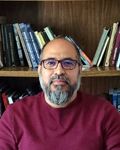2023
Bebel R. Ibarra
- Adjunct Faculty
- Tulane University

Abstract
The relationship between the living and the dead has been present since the emergence of modern humans. Today, populations have their own way of dealing with death influenced by culture and religion. Archaeologists research ancient cemeteries surrounded by local communities. However, the local knowledge does not correlate with academic publications nor reflect the feelings of the studied community members and their views about the dead. Thus, recovering traditional knowledge of descendant communities regarding mortuary practices is very important, not only as a way to collect data but also as a source for interpreting archaeological evidence. The research involves (1) recovering and documenting contemporary Indigenous knowledge of Quechua descendant communities in the town of Huari (highland Ancash, Peru) regarding mortuary practices and (2) to applying this knowledge to interpret archaeological data derived from our ongoing fieldwork on long-term changes in burial patterns in the same region. As a result of the first goal, a documentary is currently in production, while the second goal is the publication of two journal articles. At a broader level, this project represents an effort to decolonize archaeological practice through the production of narratives that balance Indigenous perspectives on the past with those of archaeologists.

